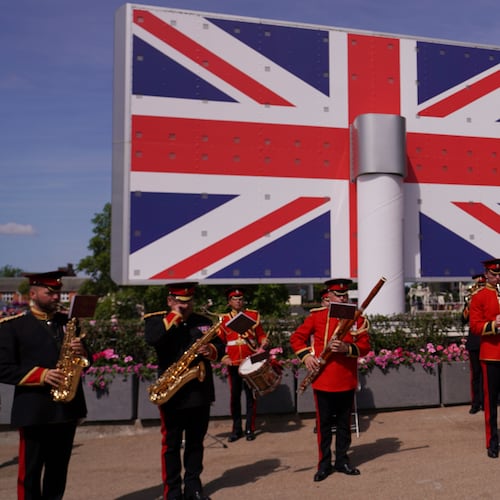I am disheartened to learn of the recent reports of bias-based incidents in the greater Atlanta area. Disheartened, however, not surprised.
As someone who takes great pride and joy in sharing with the world that I am a Georgian, it pains me to say that attacks on minority and faith-based communities are too common and often overlooked.
This month, students at Centennial High School found anti-Semitic symbols spray-painted on the school building and buses. This swastika graffiti is part of a larger pattern of upticks in bigotry across America, and the incident underscores the need for strong laws that address bias-based crimes in Georgia; the state is one of only five without a hate crime law.
After the graffiti emerged at Centennial High School, the principal sent a letter to parents condemning the act, declaring “our community rejects the hatred these symbols represent.” However, this is not the first incident of bigotry targeting a religious community in Georgia. In 2018, neo-Nazis held a swastika burning event in rural Georgia. In 2017, a Grayson High School student drew a swastika on a football field. And my own brother, Japjee Singh, who maintains a full beard and wears a turban as part of his Sikh faith, experienced violent bias-based bullying in his schools, resulting in two U.S. Department of Justice settlements in 2013 and 2014 with the DeKalb County School District.
Unfortunately, these issues are not new to our state. In 2000, Georgians had additional legal protections against hate, but that law was struck down in 2004. Fifteen years later our leaders have yet to effectively revisit this topic. We need a robust hate crime law now more than ever, given the current volatile political and social climate that puts various religious and minority communities at risk.
Bigotry is not just a local problem; the most recent FBI data shows that hate crimes have risen for three consecutive years. Though we see a rise, this data is likely under-representative, given the multiple issues with hate crime reporting. Just before the report’s release, a man shouting anti-Semitic slurs opened fire in a Pennsylvania synagogue in October, killing 11 people and wounding others. This attack is reminiscent of one that targeted the Sikh community in 2012, when a neo-Nazi opened fire in a Wisconsin gurdwara, a Sikh house of worship. These attacks remind us of the multifaceted work that must be done in the United States to combat hate.
At the Sikh Coalition, the national civil rights organization where I work, we are seeing evidence that the rise in hate crimes is having a parallel effect in our schools. In the 2017-18 school year, our legal team has witnessed a dramatic rise in school bullying legal intakes.
In order to effectively solve a problem, we need to first accurately identify the problem. In the case of hate crimes in our nation’s schools, homes, workplaces and places of worship, officials should investigate, charge and prosecute hate crimes when they occur. This will help policy makers, community leaders and the public better understand the sources of bias-based crimes so we can disseminate resources appropriately to address the issue.
Bias crimes don’t just affect individuals; they impact entire communities, contribute to civil unrest in society and make us all less safe. We are a strong, diverse society and we must do more for our children, our neighbors and our families.
As a moral issue, we must seek to end bias-based crimes. Unfortunately, despite legislative efforts to address bigotry, Georgia is still one of five states that doesn’t have a hate crime law. How can we end hate when we don’t even acknowledge it?
These acts of hate cannot remain brief crises of the conscience. At a time when bias and bigotry are impacting all levels of our society, including hate graffiti in our nation’s schools, we urgently need a comprehensive hate crime law in Georgia.
Aasees Kaur is from Dunwoody, and serves as the Legal Client and Community Services Manager for the Sikh Coalition.
About the Author
Keep Reading
The Latest
Featured


